
As your Shih Tzu reaches their senior years, their needs and requirements change significantly. These beloved dogs, known for their loyal and affectionate nature, can continue to lead happy and comfortable lives with the right care and adjustments. This comprehensive guide will explore essential tips and strategies for ensuring your senior Shih Tzu ages gracefully. From diet and exercise to grooming and health care, we’ll cover everything you need to know to support your aging companion.
Understanding the Aging Process in Shih Tzus

Recognizing the Signs of Aging
As Shih Tzus advance into their senior years, typically around 7-10 years of age, you might notice various signs of aging. These include graying fur, especially around the muzzle, decreased energy levels, and changes in their coat’s texture. Older dogs may also experience joint stiffness, slower movements, and a reduced enthusiasm for activities they once enjoyed. Understanding these signs allows you to tailor their care and make necessary adjustments to their daily routine.
Common Health Issues in Senior Shih Tzus
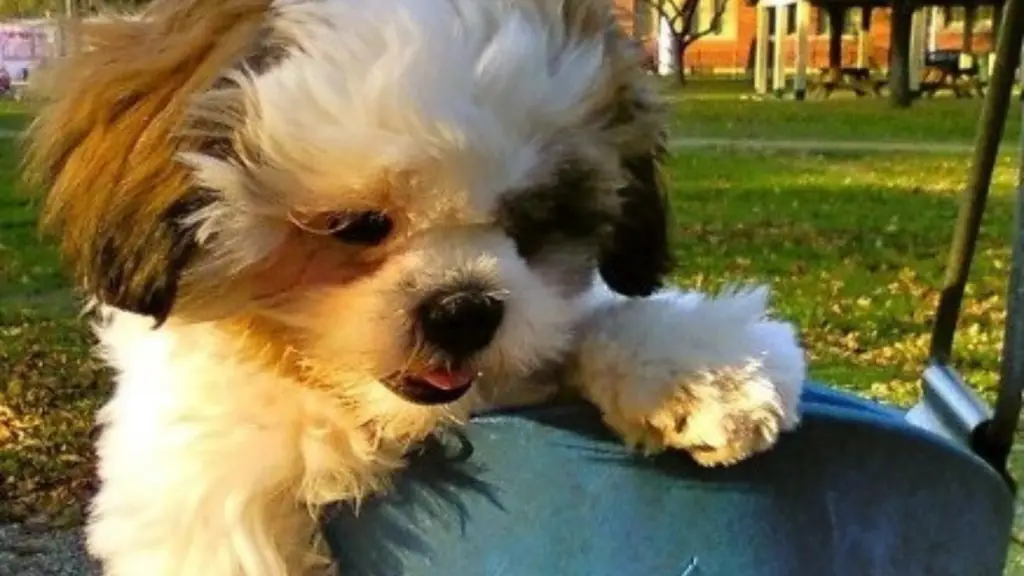
Senior Shih Tzus are susceptible to several health issues that require special attention. These include arthritis, dental disease, heart conditions, and sensory losses like vision or hearing impairments. Regular veterinary check-ups are crucial for monitoring these conditions and providing early intervention. Awareness of these common health issues will help you take proactive measures to address them and maintain your dog’s quality of life.
The Role of Regular Veterinary Care
Routine veterinary visits are essential for the well-being of senior Shih Tzus. These check-ups facilitate early detection of health problems and allow for timely intervention. Your vet can offer personalized advice on diet, exercise, and medication tailored to your dog’s specific needs. Regular blood tests and dental examinations can also help identify underlying issues before they become severe, ensuring your Shih Tzu’s continued health and comfort.
Nutrition for Senior Shih Tzus

Adjusting Their Diet for Senior Needs
As Shih Tzus age, their dietary requirements change. Older dogs generally need fewer calories due to decreased activity levels, but their diet must still be rich in essential nutrients. Opt for dog food specifically formulated for senior dogs, which typically has lower fat content and higher fiber. These specially designed foods support joint health and muscle maintenance, crucial for aging dogs.
Ensuring Adequate Hydration
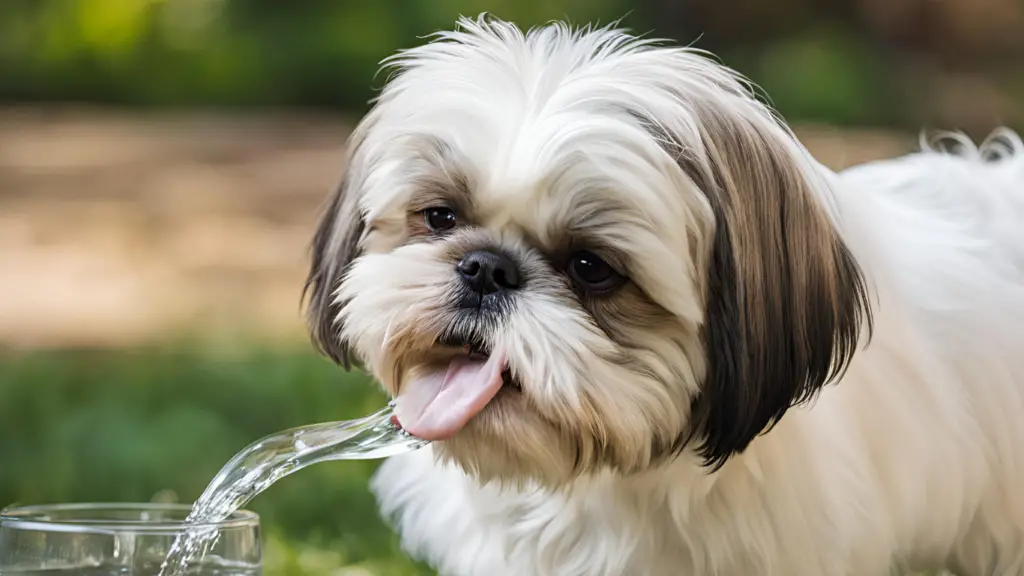
Hydration is particularly important for senior dogs, who may be more susceptible to dehydration. Ensure your Shih Tzu always has access to fresh water and consider incorporating wet food into their diet to boost hydration. Dehydration can lead to urinary tract issues and other health problems, so monitoring their water intake and adjusting their diet accordingly is crucial.
Managing Weight and Preventing Obesity
Maintaining a healthy weight is essential for senior Shih Tzus to avoid complications such as joint problems, heart disease, and diabetes. Regularly monitor your dog’s weight and adjust their food intake and exercise routine as needed. Your veterinarian can help develop a weight management plan that includes portion control and appropriate activities to keep your Shih Tzu at a healthy weight.
Exercise and Mobility
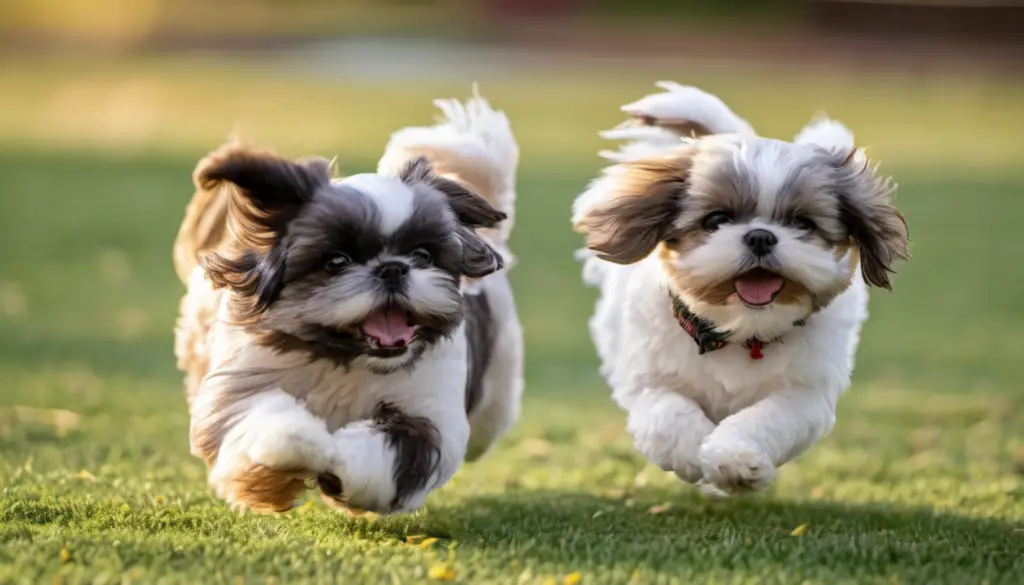
Tailoring Exercise to Their Abilities
Although senior Shih Tzus may not have the same energy levels as they did when younger, regular exercise remains important. Adapt their exercise routine to suit their current abilities, focusing on low-impact activities like short walks or gentle play. Exercise helps maintain muscle mass, supports joint health, and provides mental stimulation, all of which contribute to their overall well-being.
Supporting Joint Health
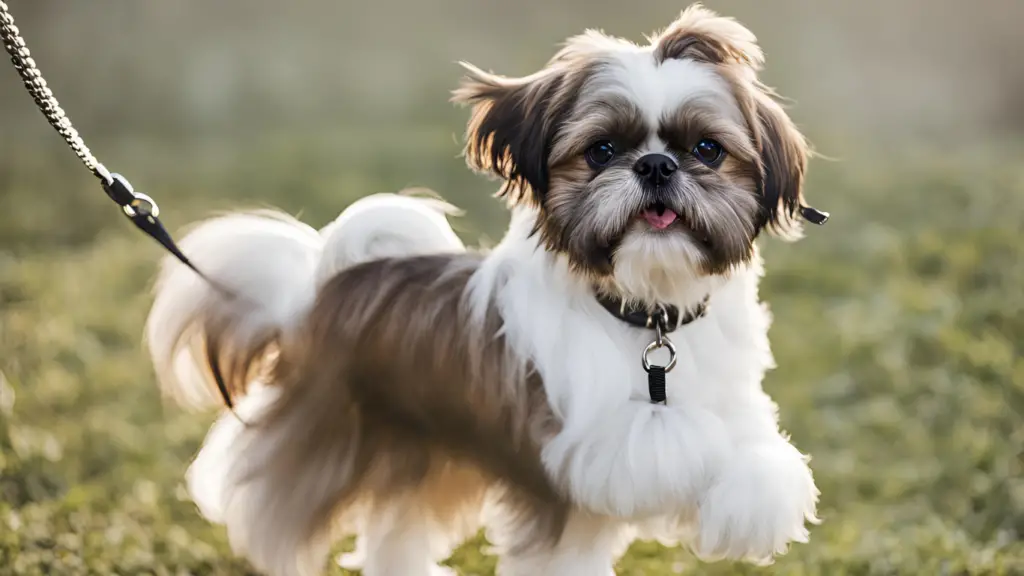
Joint issues, including arthritis, are common in senior Shih Tzus and can affect their mobility. To support joint health, provide a comfortable, supportive bed and consider joint supplements such as glucosamine and chondroitin. Gentle massages and physical therapy can also help alleviate stiffness and improve circulation. Consult with your veterinarian before introducing any new supplements or treatments.
Adapting Your Home Environment
Modifying your home environment can greatly enhance the comfort and safety of your senior Shih Tzu. Consider adding ramps or steps to help them access furniture or beds, and ensure their sleeping area is warm and free from drafts. Non-slip mats on hard floors can prevent slips and falls, especially for dogs with joint issues.
Grooming and Hygiene
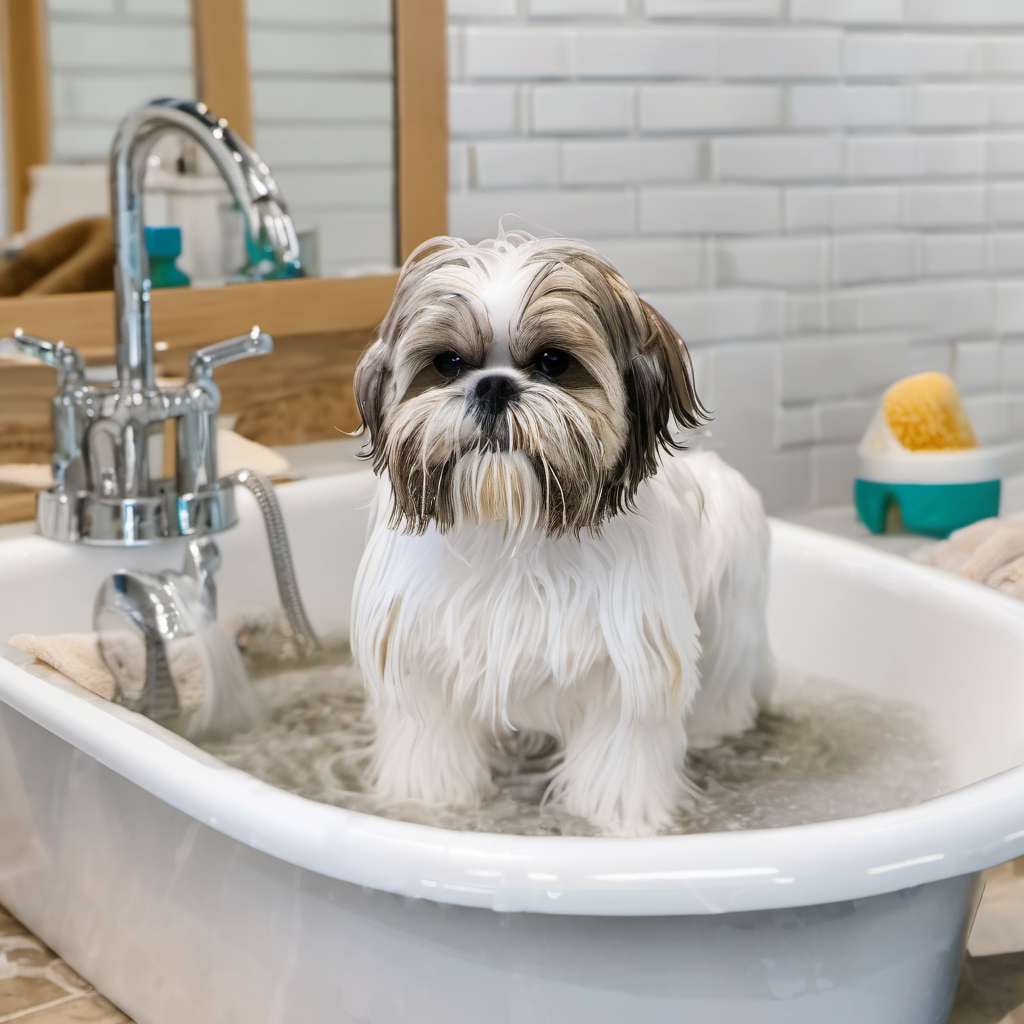
Maintaining a Regular Grooming Routine
Grooming is essential for the health and comfort of senior Shih Tzus. As dogs age, their skin can become more sensitive, and their coat may become drier or more prone to matting. Regular brushing helps remove dead hair and distribute natural oils, keeping the coat shiny and healthy. Additionally, regular baths with a gentle, dog-specific shampoo can help maintain skin health and prevent irritants.
Importance of Dental Care
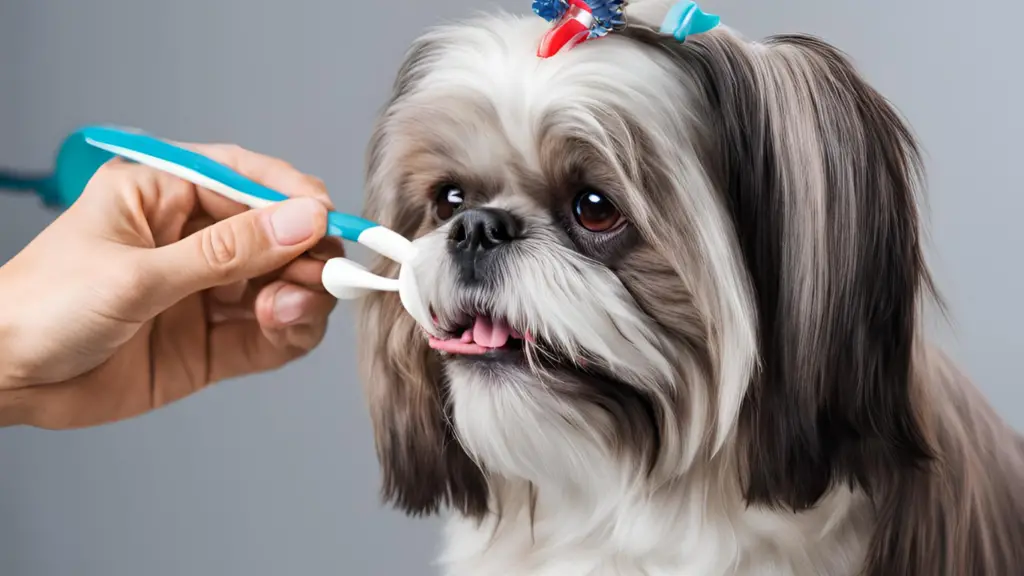
Dental care becomes increasingly important as Shih Tzus age. Senior dogs are more prone to dental issues like gum disease and tooth loss, which can impact their overall health. Brush your dog’s teeth regularly and provide dental chews to support oral hygiene. Schedule regular dental check-ups with your veterinarian to address any issues early and prevent more serious problems.
Ear and Eye Care for Seniors
Senior Shih Tzus may be more prone to ear infections and eye issues. Regularly check their ears for signs of infection, such as redness or a foul odor, and clean them with a recommended solution. For eye care, keep the area around their eyes clean and monitor for any vision changes. If you notice any problems, consult your veterinarian for appropriate treatment.
Mental Stimulation and Emotional Well-being
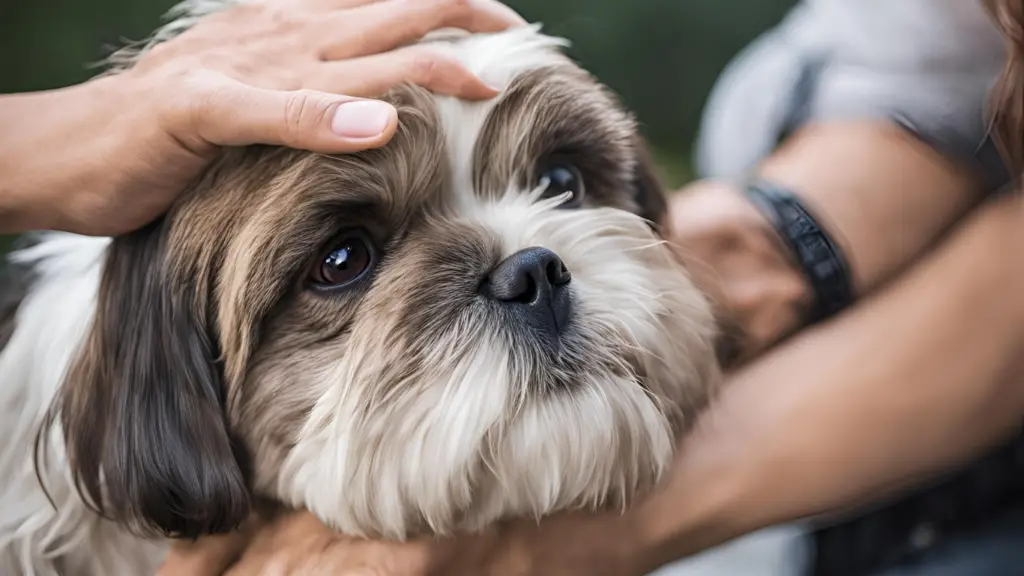
Providing Mental Stimulation
Keeping your senior Shih Tzu mentally stimulated is vital for their cognitive health. Engage them with puzzle toys, interactive games, and gentle training sessions to keep their mind active. Introducing new experiences, even if they are low-key, can also provide mental enrichment and help prevent cognitive decline.
Maintaining a Consistent Routine
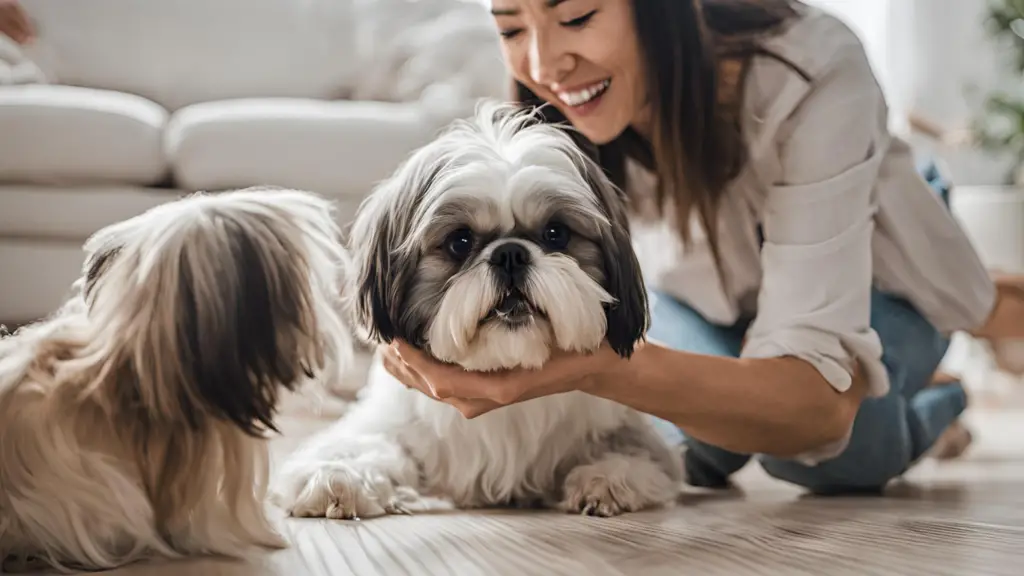
Senior dogs thrive on routine, which provides them with a sense of security and predictability. Maintain consistent feeding, walking, and bedtime routines to reduce stress and anxiety. Gradually introduce any necessary changes to their routine to help them adjust smoothly and maintain a stable environment.
Fostering Social Interaction
Social interaction remains important for your senior Shih Tzu’s emotional well-being. Although they may not be as active as before, they still benefit from companionship and socialization. Spend quality time with your dog through gentle play and cuddling, and consider arranging playdates with other gentle dogs or familiar people to maintain their social connections.
Managing Age-Related Health Conditions
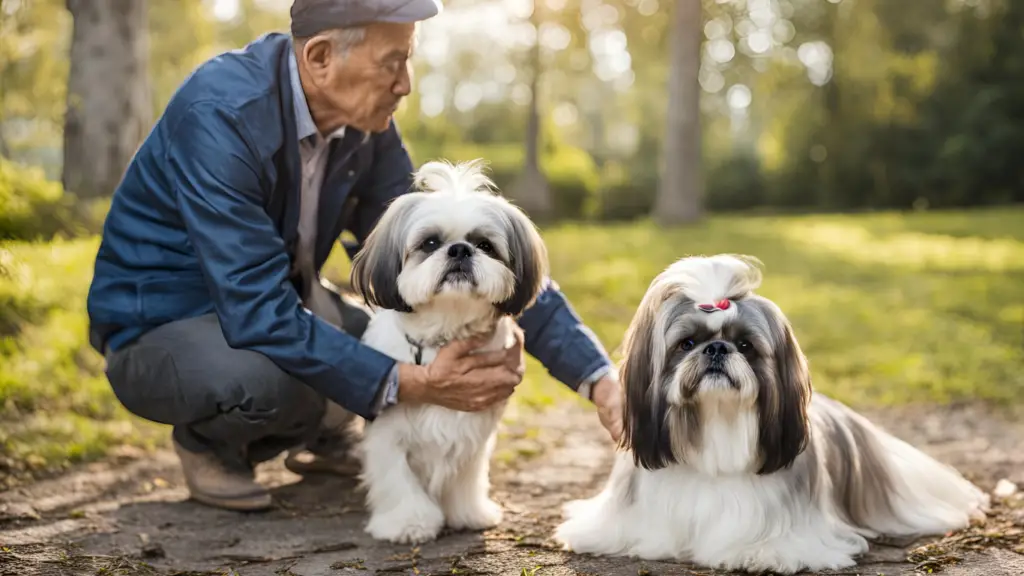
Addressing Arthritis and Mobility Issues
Arthritis is a common concern for senior Shih Tzus, leading to joint pain and decreased mobility. Work with your veterinarian to create a comprehensive treatment plan, which may include medications, supplements, and physical therapy. Maintaining a healthy weight and providing a comfortable living space can also help alleviate arthritis symptoms and improve your dog’s mobility.
Monitoring Heart Health
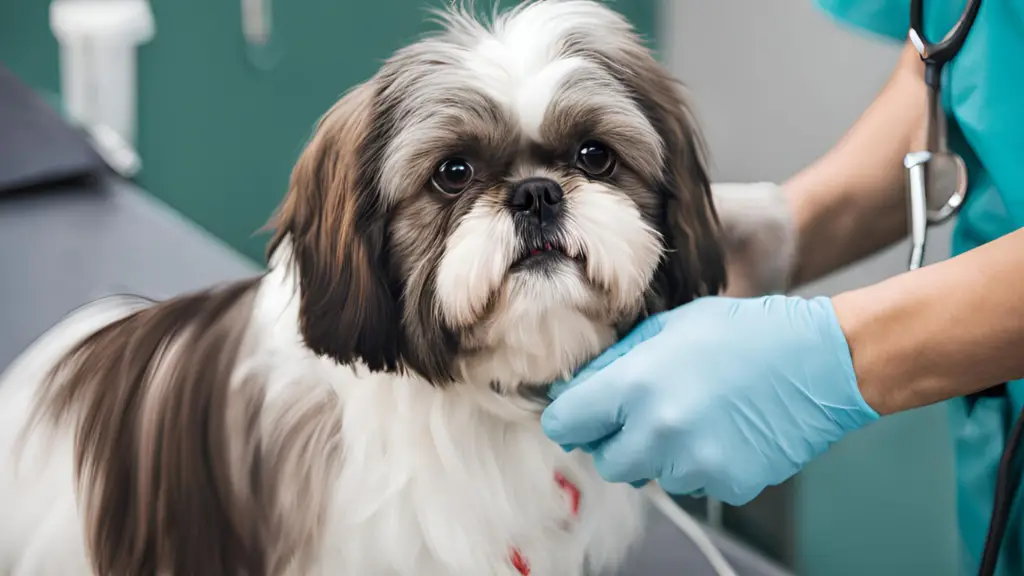
Heart disease, such as mitral valve disease, is prevalent in senior Shih Tzus. Regular veterinary check-ups are essential for monitoring heart health and managing any diagnosed conditions. Your veterinarian may recommend medications, a low-sodium diet, or other lifestyle changes to help manage heart disease and maintain your dog’s quality of life.
Managing Vision and Hearing Loss
Senior Shih Tzus often experience vision and hearing loss, which can affect their ability to navigate their environment and respond to stimuli. If you notice signs of decreased vision or hearing, such as difficulty finding objects or responding to commands, consult your veterinarian. Adjusting your home environment with tactile markers and maintaining a consistent routine can help your dog adapt to these changes.
End-of-Life Care and Decisions
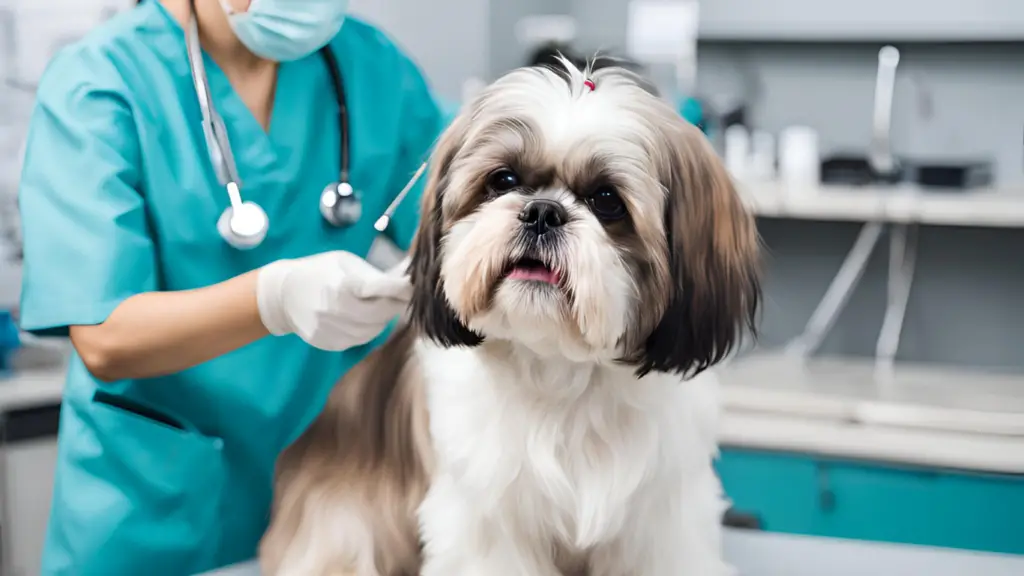
Recognizing Signs of Decline
As your Shih Tzu approaches the end of their life, you may notice signs that indicate a decline in their health and quality of life. These can include severe mobility issues, chronic pain, loss of appetite, and significant changes in behavior. Observing these signs and discussing them with your veterinarian will help you make informed decisions about your dog’s care and comfort.
Discussing Quality of Life with Your Veterinarian
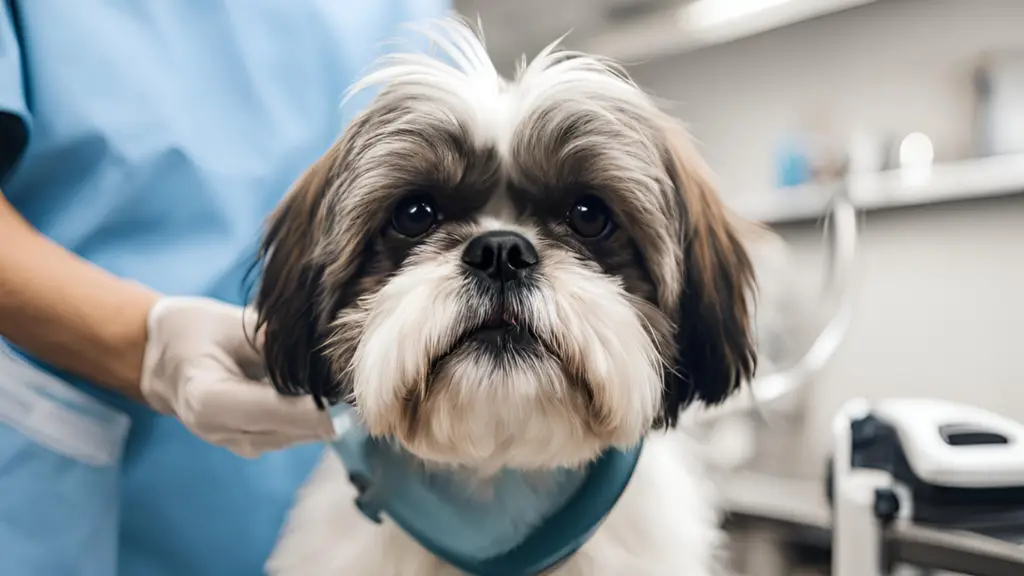
When facing difficult decisions about end-of-life care, consulting with your veterinarian is crucial. They can provide guidance on pain management, quality of life assessments, and options for euthanasia if necessary. Your veterinarian can help you evaluate your dog’s comfort and well-being and make decisions that align with their best interests.
Providing Comfort in Their Final Days
Ensuring comfort in your Shih Tzu’s final days involves providing a peaceful and supportive environment. Focus on their comfort by offering soft bedding, easy access to food and water, and gentle affection. Being present and offering love and reassurance during this time can provide solace and make their transition as peaceful as possible.

Conclusion
Caring for a senior Shih Tzu requires a thoughtful approach that addresses their changing needs and maintains their quality of life. By understanding the aging process, adjusting their diet and exercise, and providing proper grooming and health care, you can ensure your beloved companion remains comfortable and happy in their later years. Monitoring their health, adapting their environment, and offering emotional support are all essential components of senior dog care.
Embrace the journey of aging with your Shih Tzu by making informed decisions and providing them with the love and care they deserve. As they age gracefully, your dedication will contribute significantly to their well-being and happiness. By following these guidelines, you can help your senior Shih Tzu enjoy a fulfilling and comfortable life well into their golden years.


